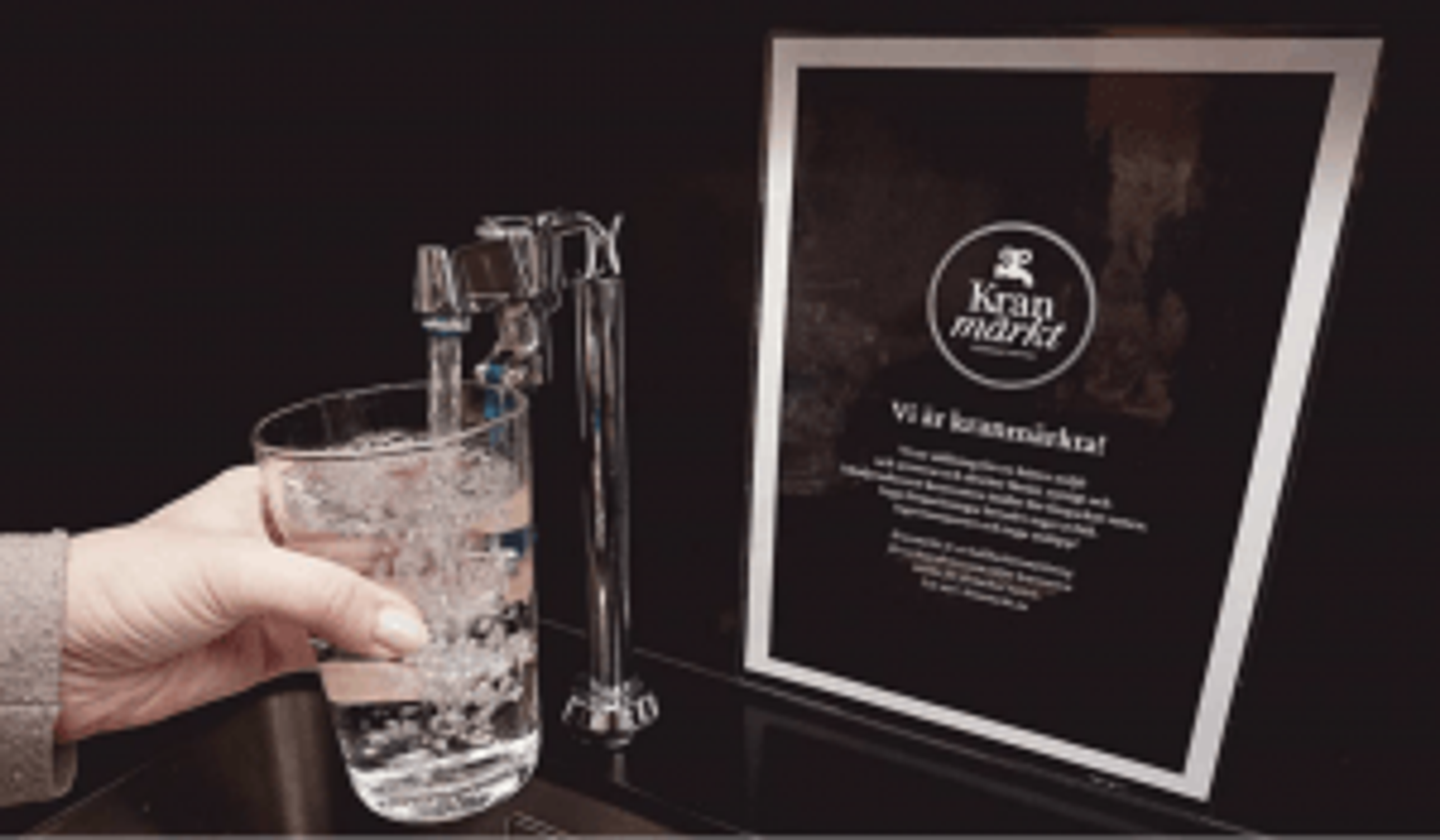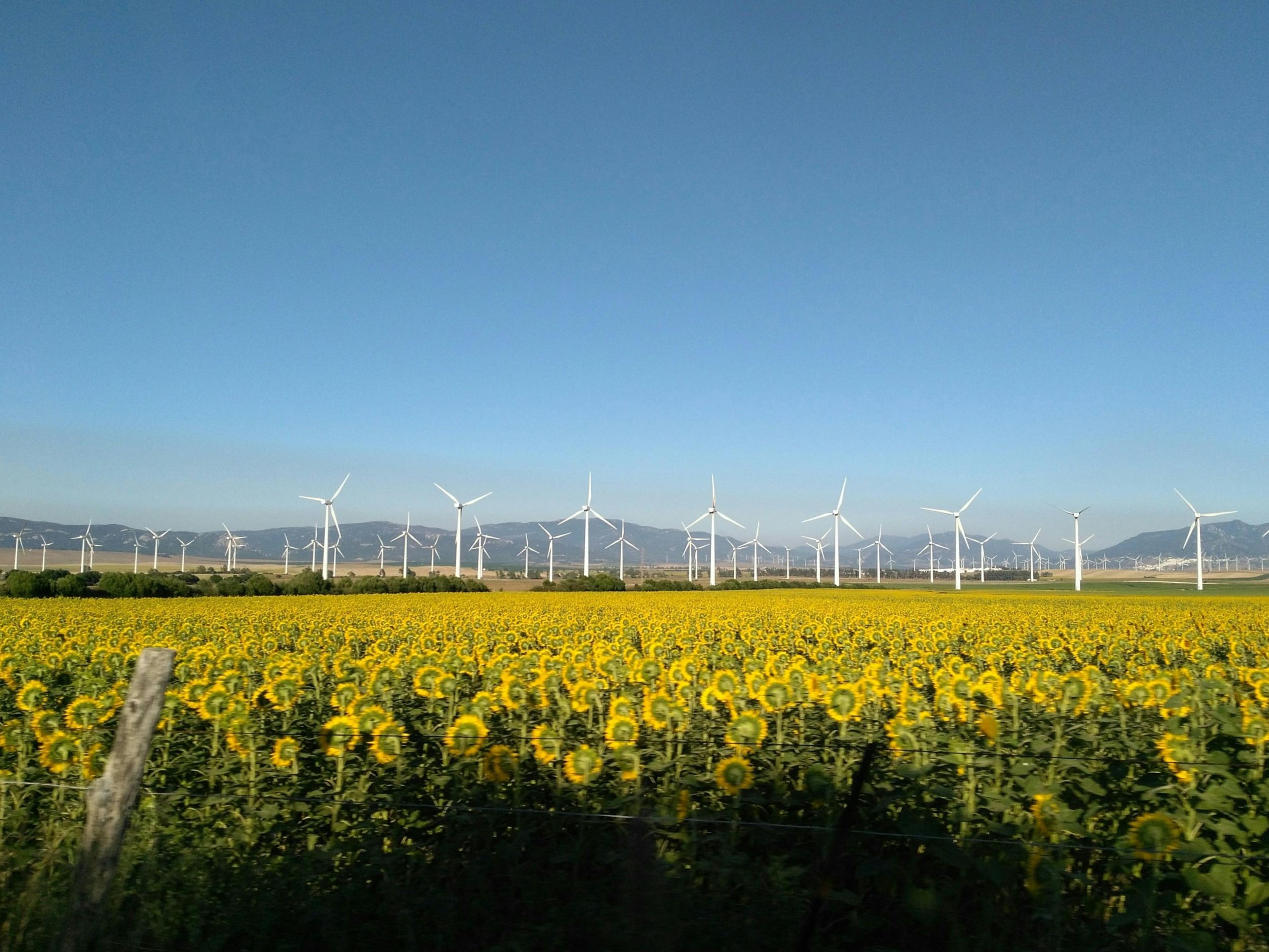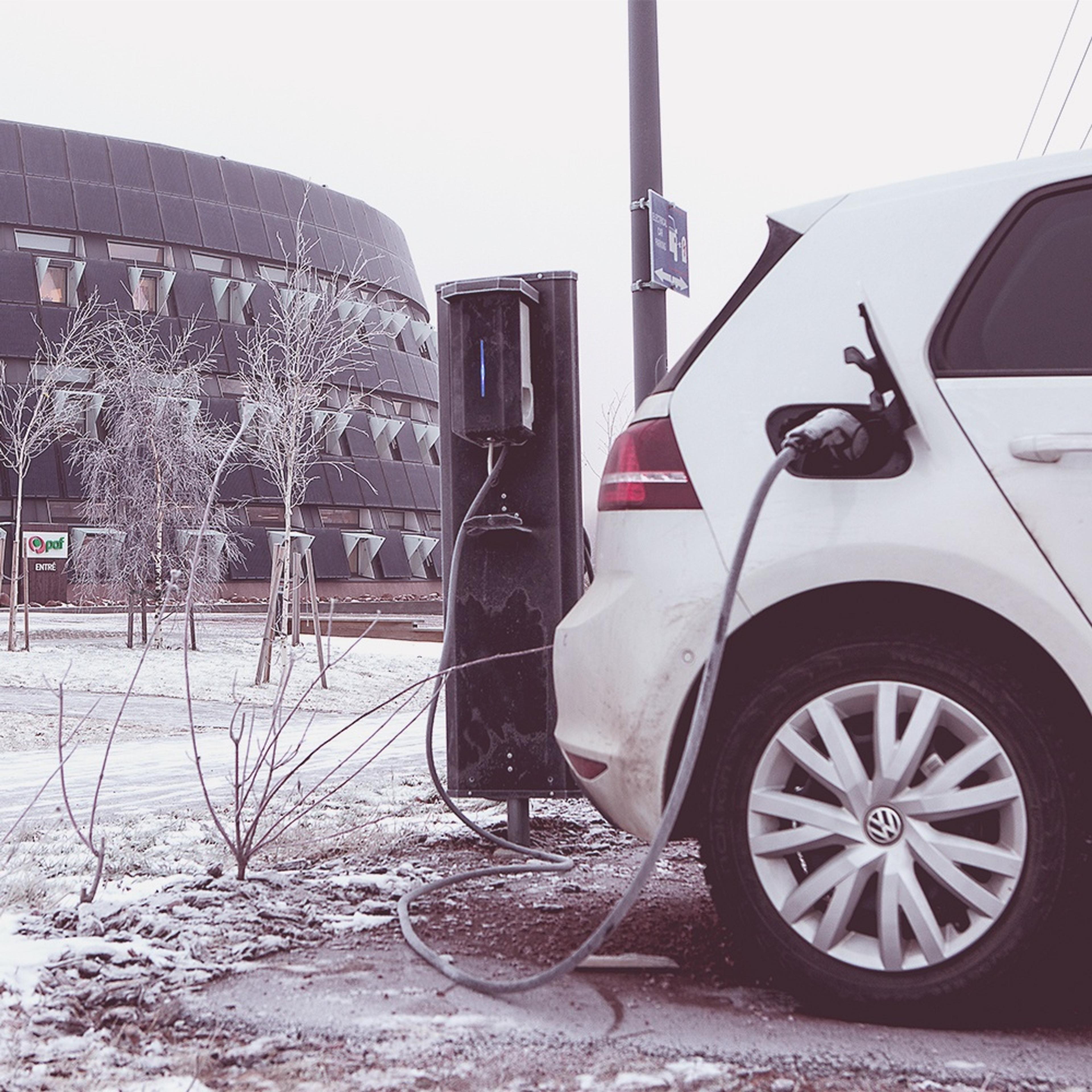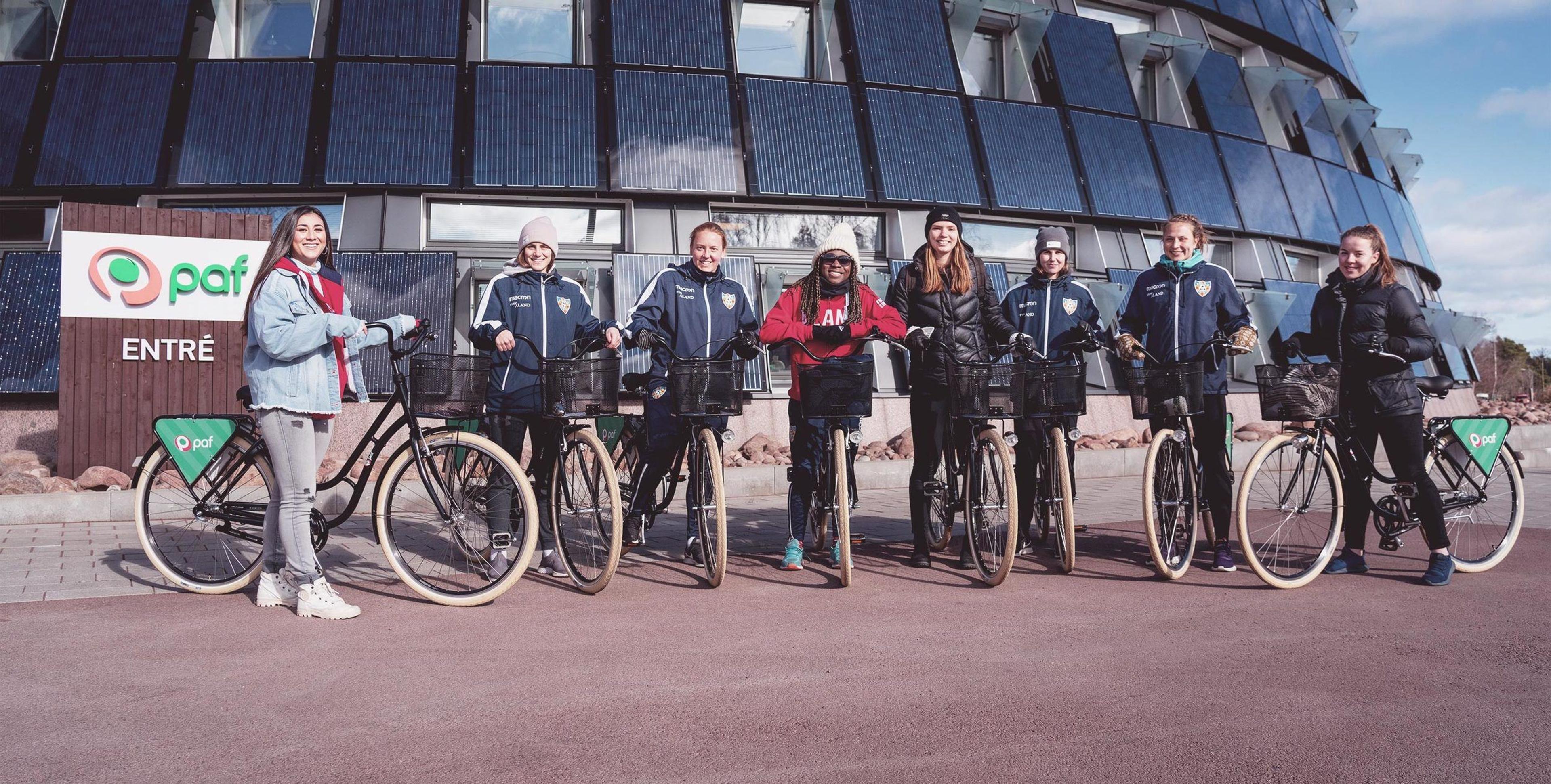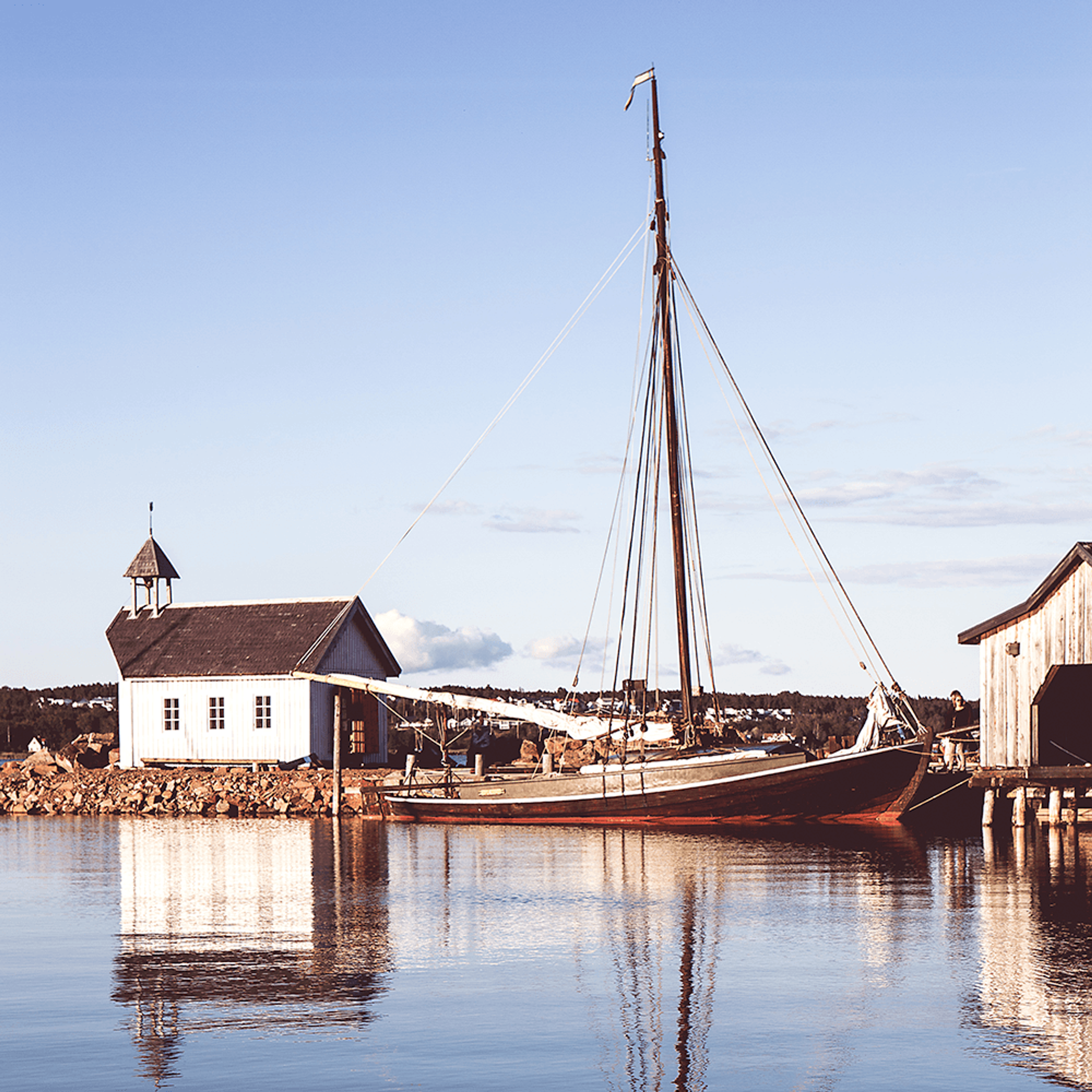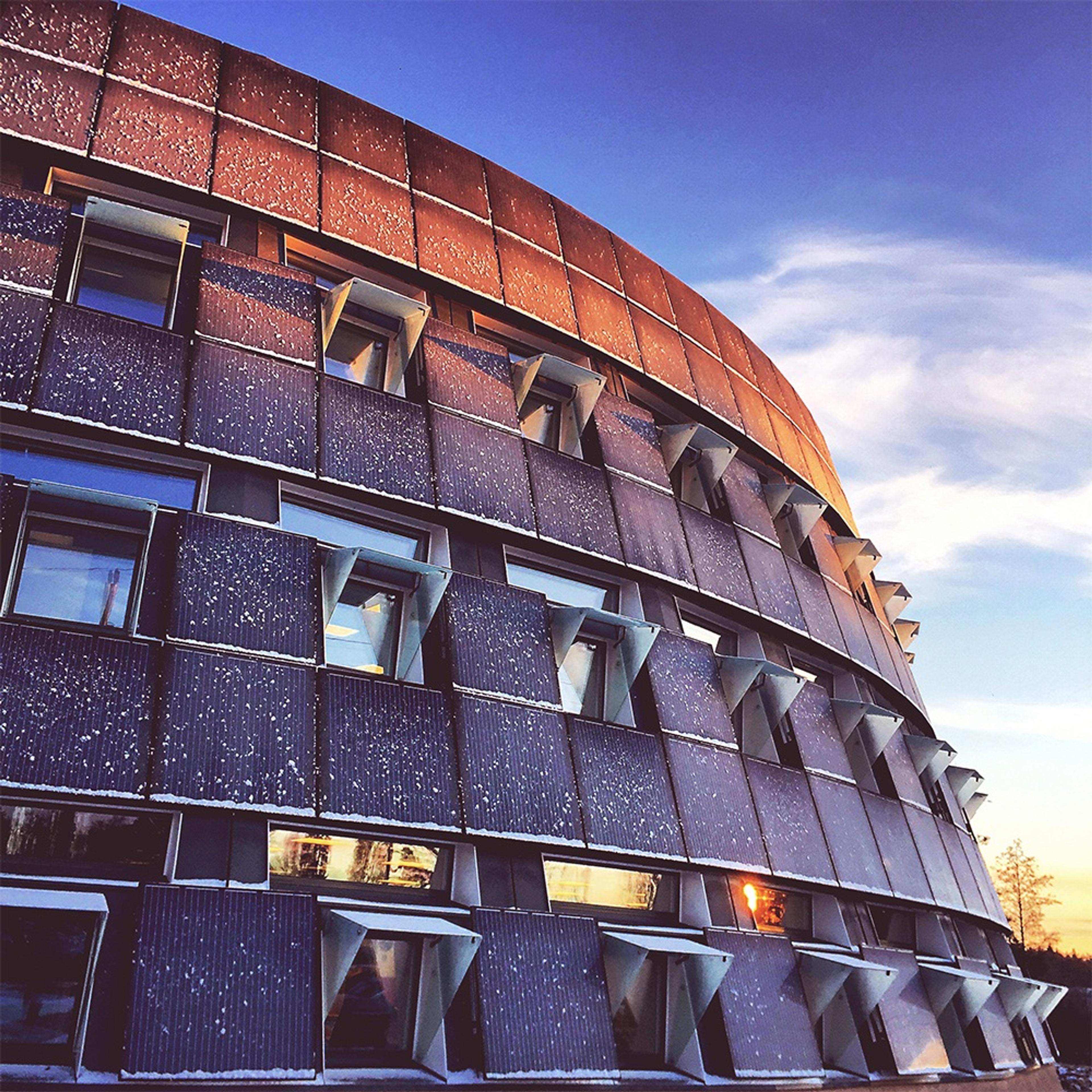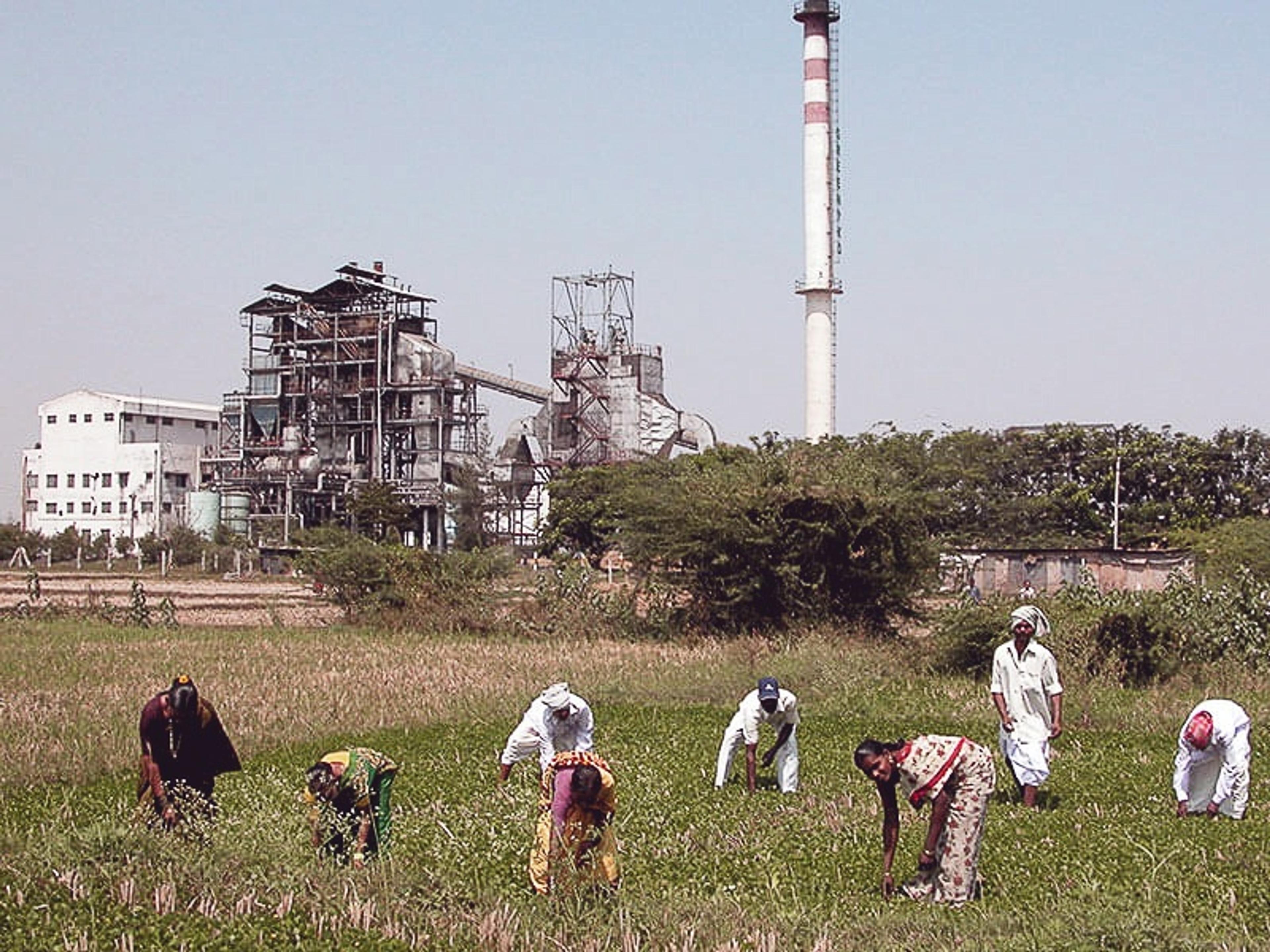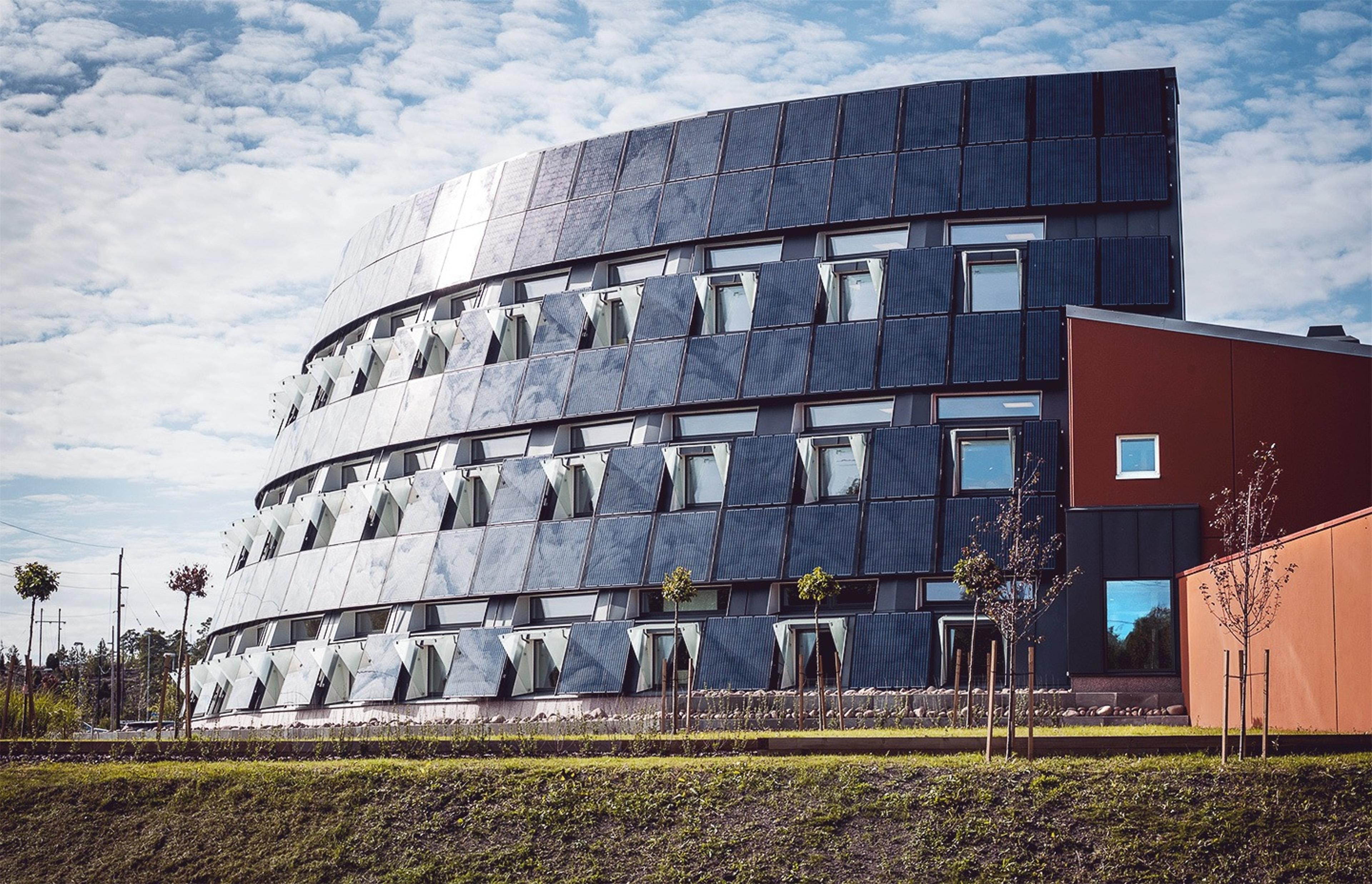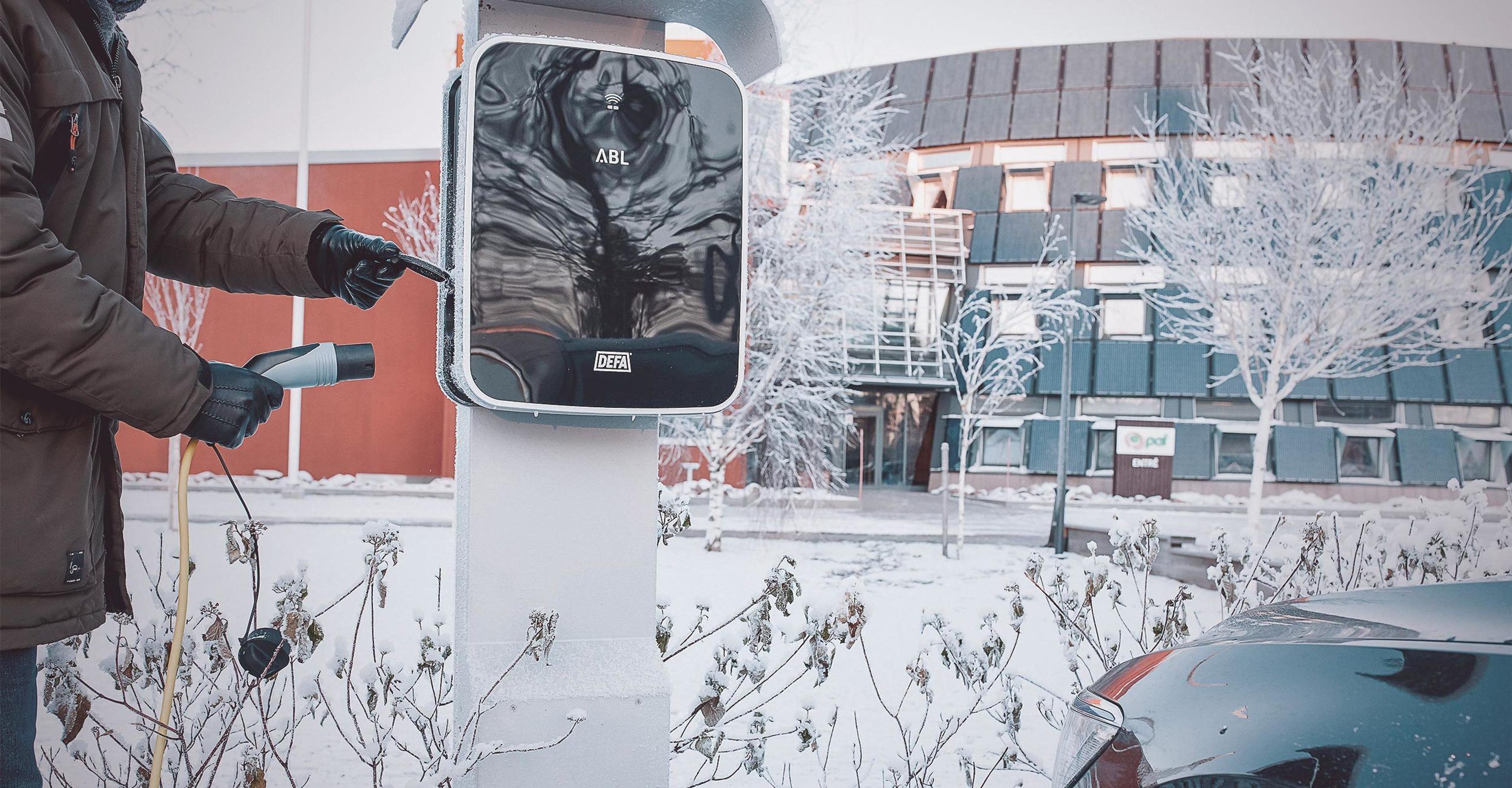Paf commits to reach Net-Zero
We are committed to reduce our climate impact in line with the Paris Agreement’s 1.5°C target.
That is why we have submitted science-based targets, which are approved by the Science Based Target initiative (SBTi).
Our near-term targets state that we will reduce our scope 1 and scope 2 emissions by at least 46% by 2030, from a 2019 base year.
Paf also commits to reach Net-Zero by 2040. As part of this, we commit to reduce our scope 1, 2 and 3 emissions with at least 90% by 2040, from our base year.
SBTi is a robust and scientific framework that provides climate targets and methodologies for companies around the world.
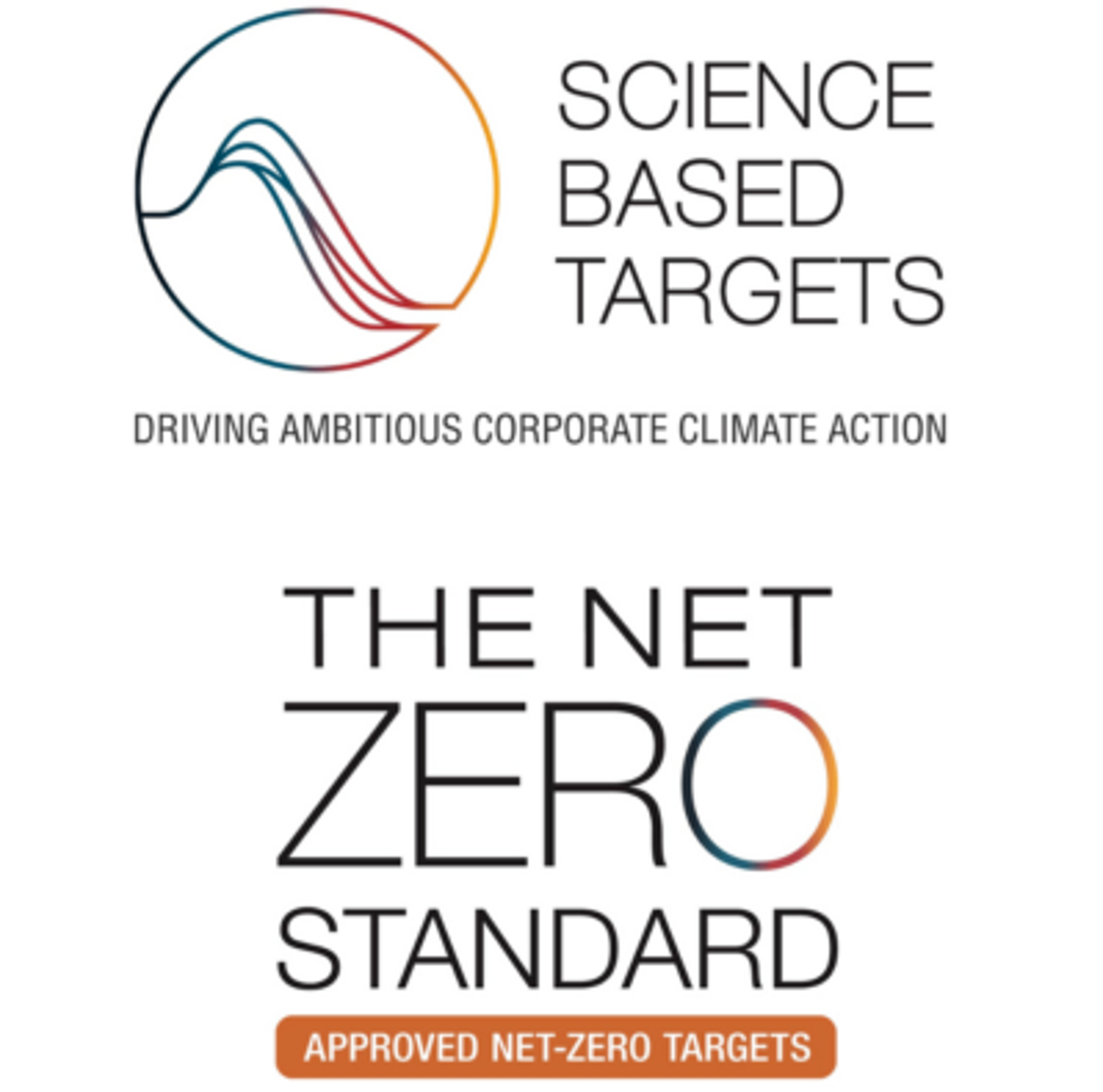
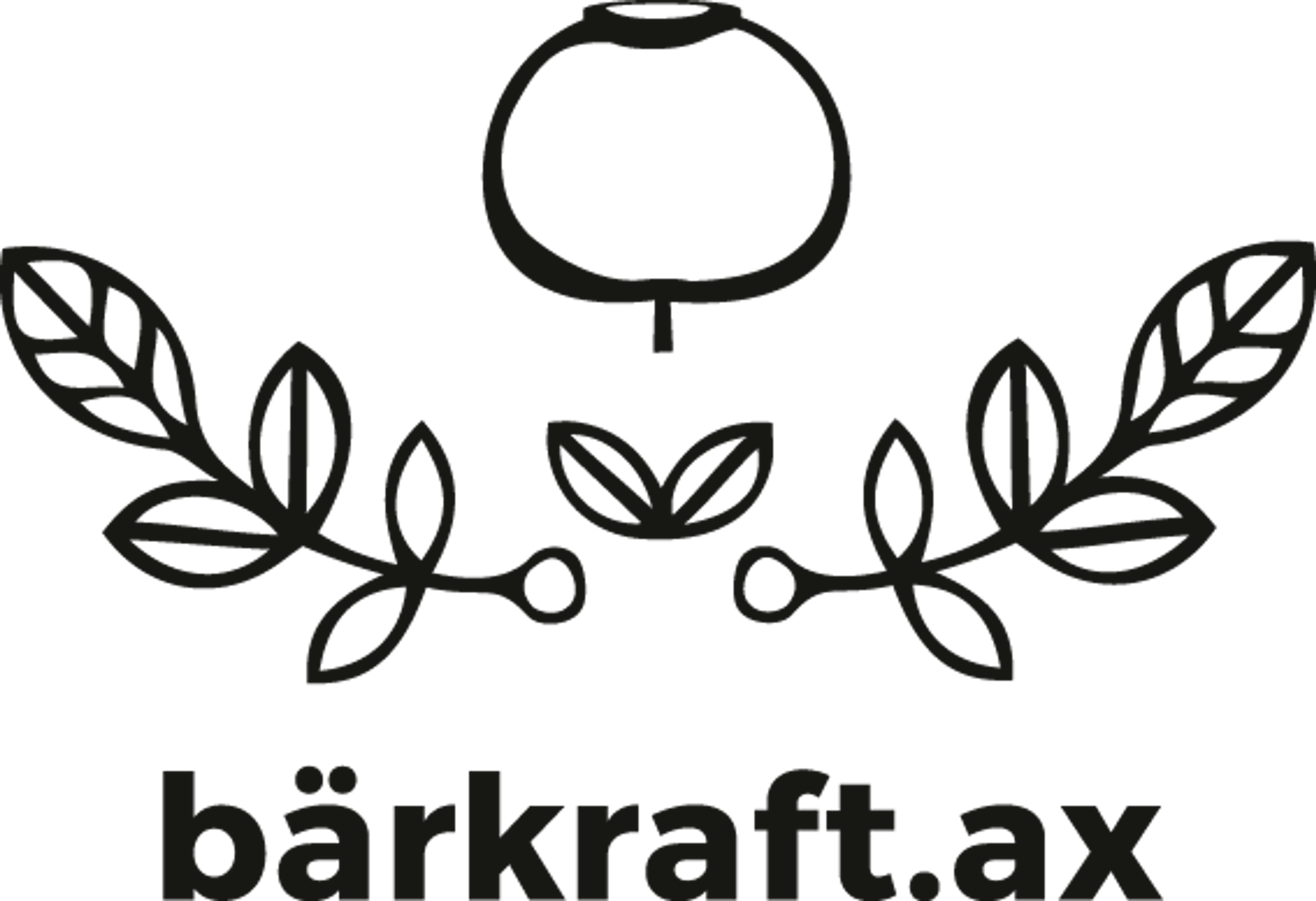
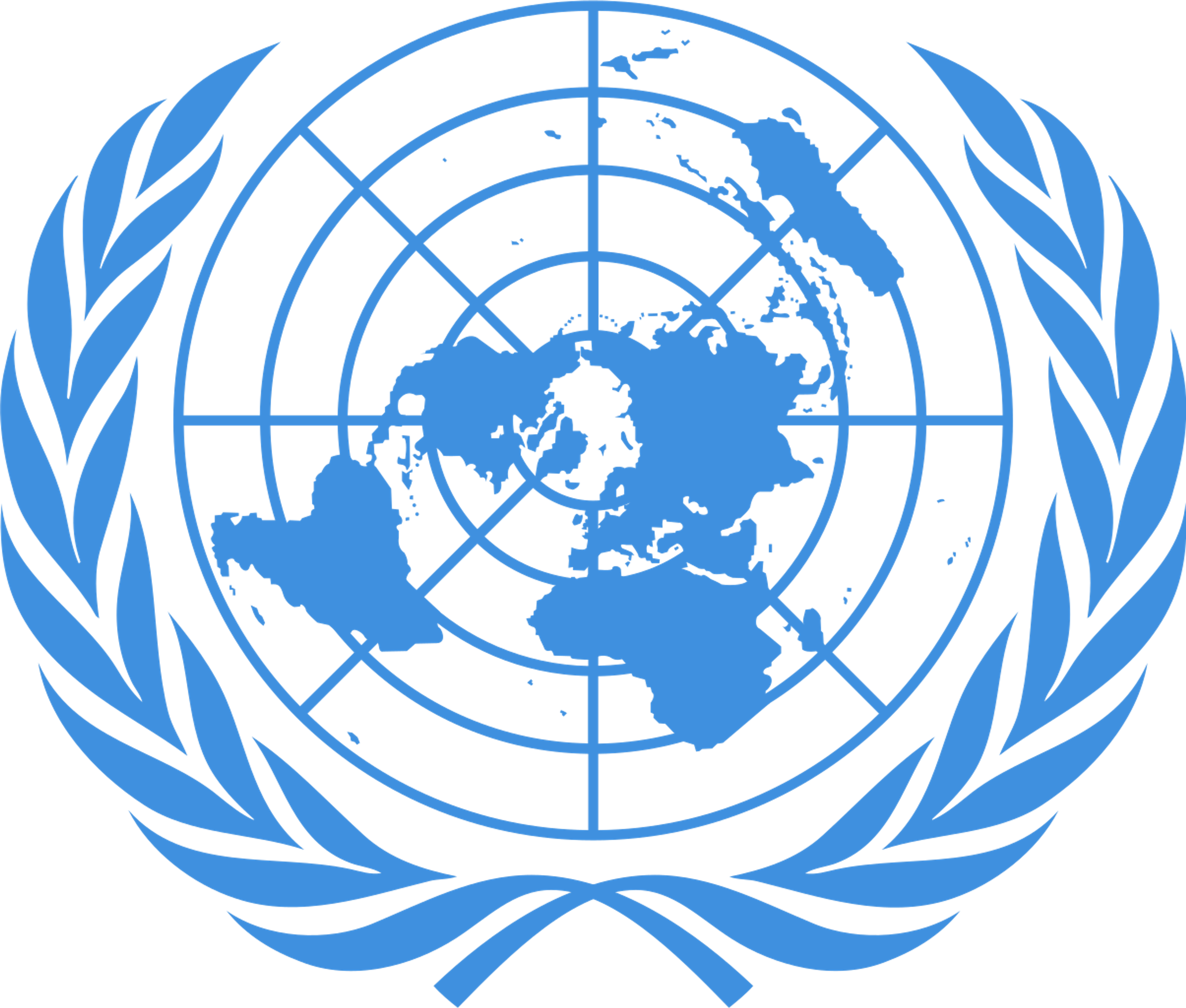
We have identified how our environmental sustainability work contributes to the UN’s global sustainability goals, as well as to the local Åland development and the sustainability agenda’s strategic goals. This resulted in two different goals within the Åland sustainability agenda and three different global UN goals.
The Åland sustainability agenda


UN Global Development Goals

Climate-smart head office
During Paf’s 50th year of operation, its newly built head office was put into use. The starting point for the building and its design was to create a pleasant workplace and reduce Paf’s environmental footprint. Hence the head office is structured as a passive building, where renewable energy is used as far as possible.
Large parts of the slanted, bow-shaped exterior walls of the building are covered by a special sealing layer that reduce heating emissions, and 742 solar panels collect daylight in order to generate energy for use inside the building.
Inside the building there is motion detector-controlled LED lighting and water reducing nozzles, and on the parking lot 20 electric car chargers have been installed for the employees to use.
Big parts of the head office is built with glulam. This because it is;
- Renewable and domestic
- Strong and lightweight
- Fireproof
- Clean and easy to work with
- Good for indoor environment
- Timber absorbs carbon dioxide
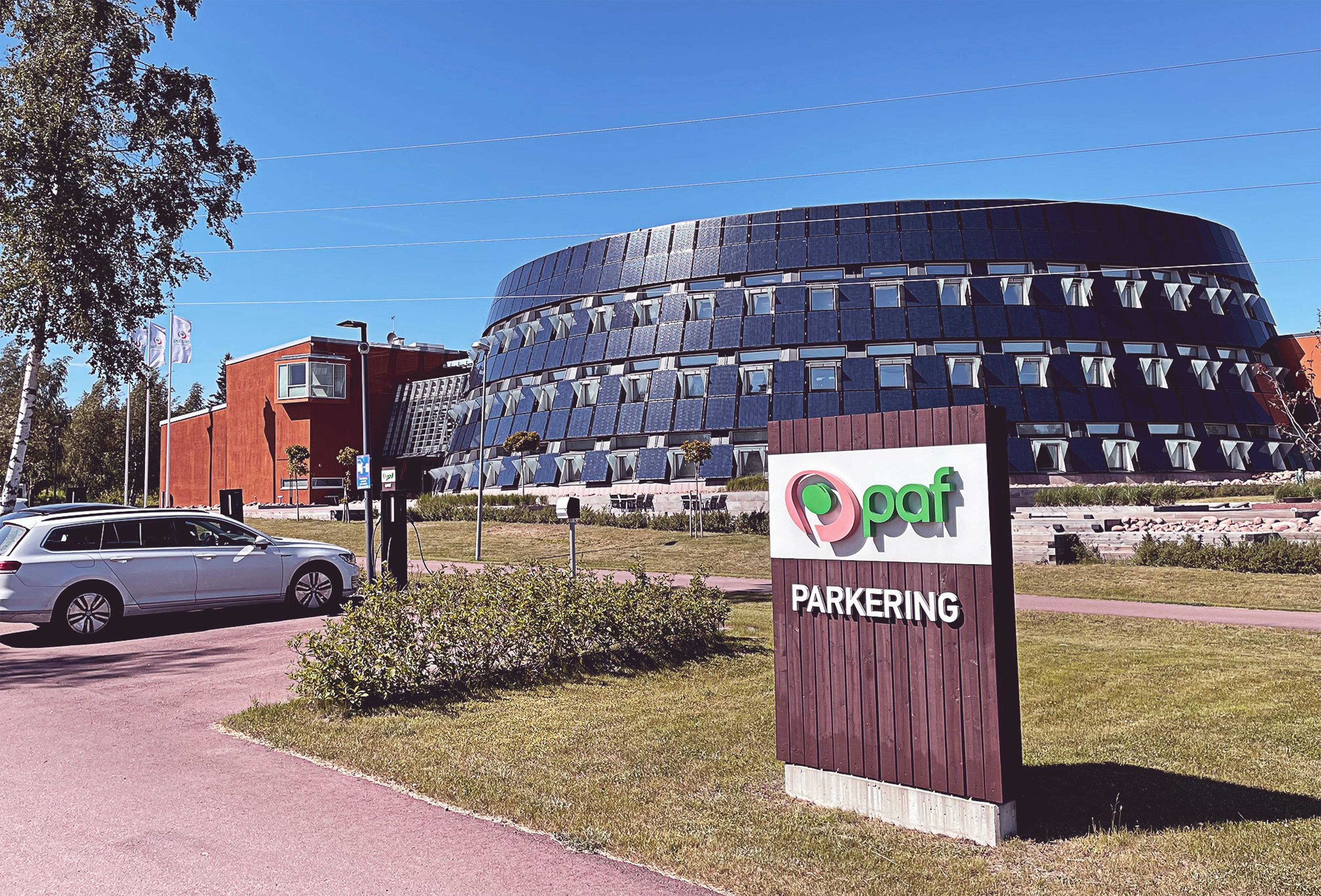
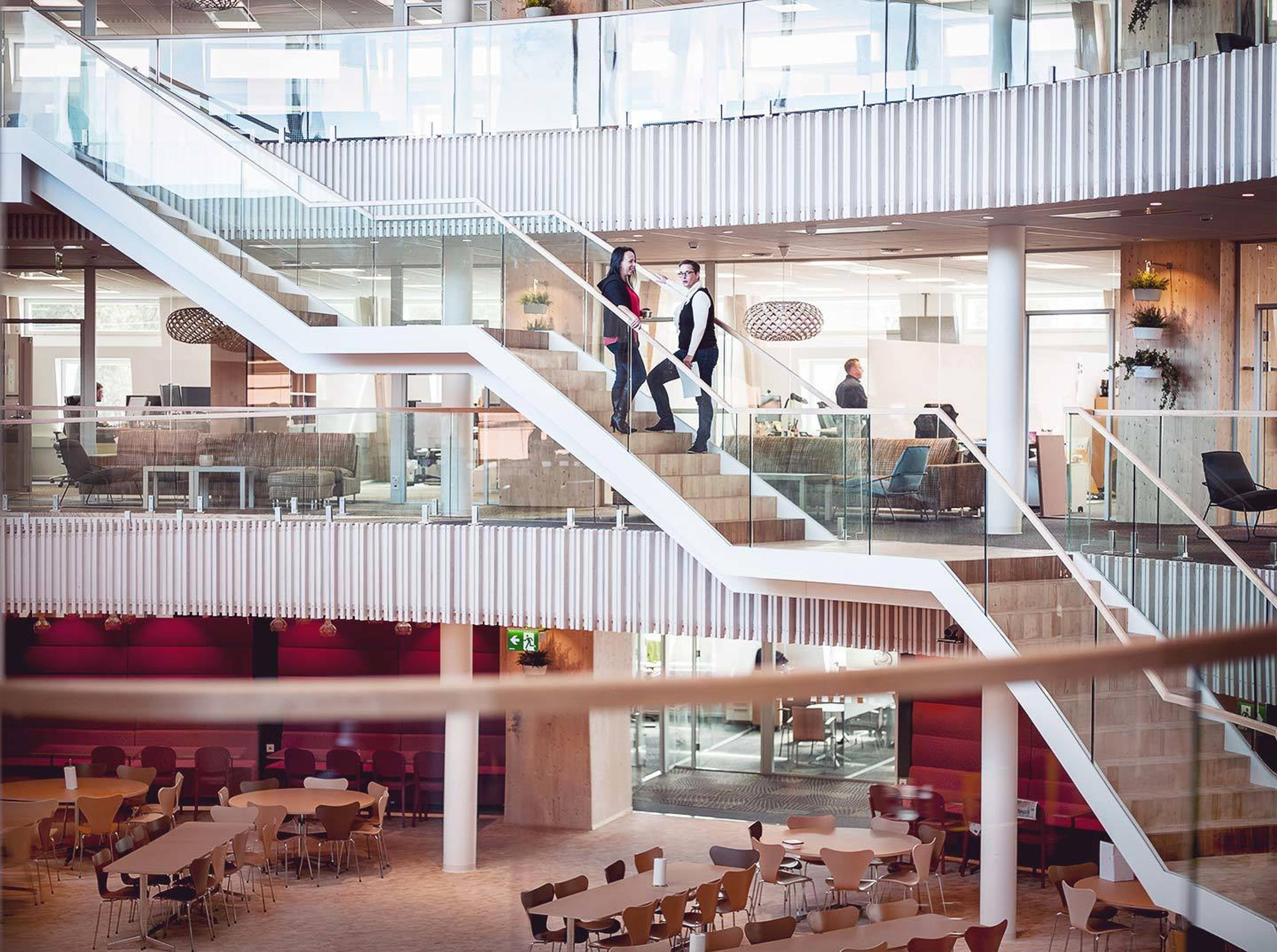
How we contribute to the Åland sustainability agenda and UN’s global sustainability goals

Green energy and electricity
We now purchase more environmentally friendly energy and electricity alternatives.

Free bicycles
Bicycles are free to borrow for our Paf employees.

Climate finance
We climate finance for the amount of our calculated impact on the environment by supporting different climate projects.

Water reducing nozzles
We have installed water reducing nozzles in Mariehamn and Helsinki.

Electric car chargers
We have installed 20 electric car chargers by the head office in Mariehamn.

Solar panels
We have installed 742 solar panels at the head office on the southern wall and on the rooftop (producing 170 000 kWh).

Review our climate impact
We review our company climate impact annually and carry out measures to reduce our emissions accordingly.

LED lighting
We have changed to LED lighting in the head office and in Helsinki. We have also installed motion detector-controlled lighting.

Video conference
We have implemented many technical solutions, such as video conferencing facilities and google meet, that facilitate teleworking and reduce our travel.
Annual Carbon Accounting
Paf has conducted an extensive analysis of its climate impact, with over 95% of carbon emissions included in the reporting. A comprehensive calculation is an important step towards achieving Net-Zero 2040.
We have recalculated the 2019 base year using the same methodology and specifications as for 2023 and 2024. The results for 2024 are directly comparable to those of the 2019 base year and 2023.
Paf’s total operations had a climate impact of 5,408 tCO₂e in 2024, representing a slight decrease from 5,533 tCO₂e in 2023.
The emissions intensity — that is, the total emissions relative to Paf’s turnover — decreased from 51.83 tCO₂e per €1 million in 2019, to 32.16 in 2023, and further to 29.55 in 2024.
As in previous years, the largest share of our greenhouse gas emissions came from Scope 3, accounting for 99.04% of our total emissions. Scope 3 emissions decreased by approximately 1.8% compared to 2023.
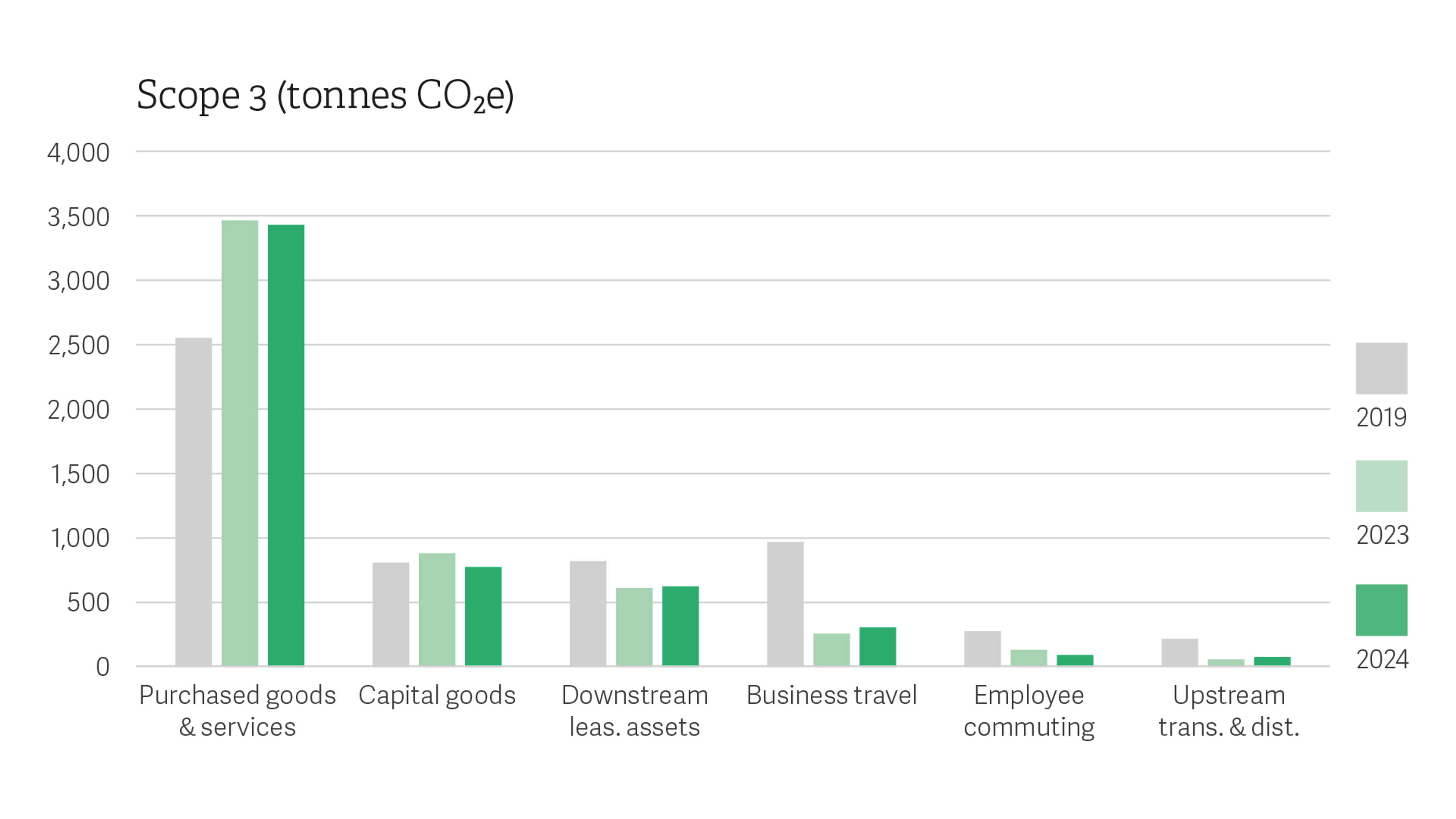
Climate finance
We climate finance our impact on the environment based on the annual climate audit. We do this every year by supporting different established projects through our climate partner. We believe that climate financing is an important action as it supports environmental improvement efforts around the world.
Read more about the climate projects we have been supporting over the last years bellow.

Kranmärkta (Eco-tap) offices
In autumn 2019 we chose to pursue Eco-tap labelling for our head office.
This means that we no longer buy water that is served in plastic bottles. Instead, we only serve local tap water, directly from our own faucets. In autumn 2018, we also installed new water-saving nozzles for most of the faucets at the head office, which reduced our water consumption in 2019 by as much as 136 cubic metres of water.
